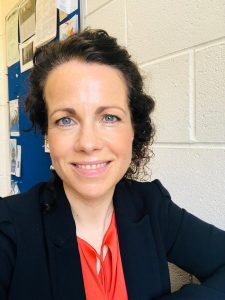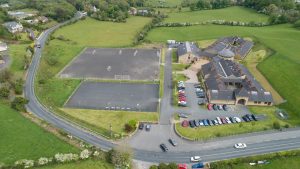
Fiona Temple is the Principal of our Milford school, Mulroy College, a school community of five hundred and fifty students and forty-eight teaching staff. Mulroy College has a long history of taking a restorative approach to managing relationships and in this blog Fiona tells us what a restorative school looks like.
Schools are essentially communities, made of various stakeholders that all play a part in ensuring the teaching and learning environment is as successful as possible for everyone.
Like any community involving so many stakeholders and so many people, there needs to be a way of working, a way in which all people are valued, all stakeholders have a voice, and all persons contribute in a positive way to how the community operates.
Schools are very complex in their nature and when there are so many people, naturally problems will arise. A restorative school is a community based on principles of mutual respect, where everyone has an understanding that their behaviour affects others, and they have a responsibility to the community.
In Mulroy College where a behaviour presents that we cannot accept, we ask the person what happened, what were they thinking at the time, who was affected, how were they affected and what needs to be done to repair the harm. Rather than asking someone why did you do that and telling them it is wrong, these questions allow the person to process it themselves and become involved in repairing the harm and relationships.
Where behaviours of one person or a group of people impact other members of the community in a negative way, everyone needs to be given the space and opportunity to deal with this, to listen to each other and to repair the harm caused.
The challenge when bringing people together in times of conflict is dealing with emotions, people are hurt and may want punitive measures to ensure someone else is punished. A Restorative School continues to have rules and where rules are broken, sanctions are imposed, the add on is that we judge the behaviour and not the person.
The person must be given an opportunity to return to the community and coexist with those who have been offended, this is where real dialogue is needed ensuring the offender hears how he/she has affected others and the person offended is given an opportunity to express how they have been affected and together they agree how to repair the harm. For example, in Mulroy College, if someone is a victim of bullying both parties are brought together in a safe way to allow each of them the opportunity to hear from each other, to repair the harm and see how their behaviours have affected others. This usually results in very low reoffending as people realise how their behaviour has an impact on others. Without this dialogue, the hurtful emotions can remain and affect people for a very long time. Without this dialogue there is also a high possibility of reoffending as there is no real understanding of the harm caused.

In Mulroy College these dialogues are facilitated by all staff as everyone has been trained in Restorative Practices. Every two to three years we bring in a facilitator to work with staff to refresh all of our own practices to embed Restorative practices in everything that we do.
By working together, listening to each other and working under the principles of mutual respect the community is strengthened and relationships become the core value of how the community operates.
A Restorative School is ultimately ensuring that all communication is non-judgemental, creating a community where everyone is clear that in this school we accept and work together through the principles of mutual respect. We value relationships and we value people.
Everything we do is based on that and where those standards are not upheld, we will address it in a Restorative way. There are many strategies, restorative questioning, impromptu conferences, circle times etc All of these restorative practices and principles ensure dialogue happens in a safe way, everyone has a voice, and we repair harm by working together in an non-judgemental way.
It is so important in schools that we role model what mutual respect looks like, that we give young people the tools they need in life to express themselves in times of conflict, in times of hurt, that they are given the skills needed to know how to repair harm, to realise how everyone’s behaviour affects others and at times people can make bad choices but it does not make them bad people.
As Principal of Mulroy College I try every day to value people, to strengthen relationships, to create a caring environment. When a culture is created where relationships are valued, people really flourish, and great successes are realised.
–
If you want to learn more about restorative practices, we’ve a dedicated section on our website that you can check out here.
